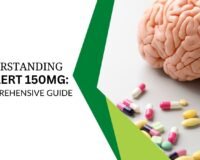Sleeping pills are often used to treat insomnia, a condition that affects millions of people worldwide. However, sleeping pills are not without risks and side effects. They can be addictive, cause dependence, impair memory and cognition, and even lead to overdose or death in some cases.
So, are sleeping pills legal to buy? The answer depends on the type and source of the sleeping pills.
Prescription Sleeping Pills
Prescription sleeping pills are drugs that require a valid prescription from a doctor to buy. They are usually stronger and more effective than OTC sleeping pills, but they also have more potential for abuse and addiction. Some examples of prescription sleeping pills are:
- Zopiclone – A sedative-hypnotic drug that works by enhancing the activity of a brain chemical called GABA. It is used to treat short-term insomnia and can cause drowsiness, dizziness, dry mouth, metallic taste, and dependence.
- Doxepin – It works by increasing serotonin and norepinephrine the levels in the brain. It can cause weight gain, blurred vision, constipation, and withdrawal symptoms.
- Trazodone – A serotonin modulator that works by affecting the balance of serotonin in the brain. It can cause nausea, headache, fatigue, and priapism (a painful erection that lasts for hours).
- Temazepam – A benzodiazepine drug that works by enhancing the activity of GABA. It is used to treat short-term insomnia and can cause drowsiness, confusion, amnesia, and dependence.
- Triazolam – Another benzodiazepine drug that works by enhancing the activity of GABA. It is used to treat short-term insomnia and can cause drowsiness, anxiety, memory loss, and dependence.
Prescription sleeping pills are legal to buy only with a valid prescription from a doctor. Buying them without a prescription is illegal and amounts to possession of a Class C drug in the UK. It can also be dangerous for your health and safety.
Over-the-Counter Sleeping Pills
Over-the-counter sleeping pills are drugs that do not require a prescription to buy. They are usually weaker and less effective than prescription sleeping pills, but they also have fewer risks and side effects. Some examples of OTC sleeping pills are:
Antihistamines – Drugs that block the action of histamine, a chemical that causes allergic reactions. They are used to treat allergies, colds, and insomnia. They can cause drowsiness, dry mouth, blurred vision, and urinary retention.
Melatonin – A hormone is used to regulates the sleep-wake cycle. It is used to treat jet lag, shift work disorder, and insomnia. It can cause headaches, dizziness, nausea, and daytime sleepiness.
Herbal Remedies – Natural products that contain plant extracts or ingredients that have sedative or calming effects. They are used to treat stress, anxiety, and insomnia. They can cause allergic reactions, interactions with other medications, and variable potency.
OTC sleeping pills are legal to buy without a prescription in most countries. However, they are not regulated by the FDA or other authorities and may not be safe or effective for everyone. You should always read the label carefully and follow the directions before using any OTC sleeping pills.
Conclusion
Pills can be divided into two categories: prescription and OTC. Prescription sleeping pills require a valid prescription from a doctor to buy and are illegal to buy without one. They are usually stronger and more effective than OTC sleeping pills but also have more risks and side effects. OTC sleeping pills do not require a prescription to buy and are legal to buy without one. They are usually weaker and less effective than prescription sleeping pills but also have fewer risks and side effects.
Sleeping pills can be helpful for some people with insomnia but they are not a long-term solution. They should only be used as directed by a doctor or pharmacist and for a short period of time. They should also be combined with good sleep hygiene practices, such as avoiding caffeine, alcohol, and nicotine, keeping a regular sleep schedule, and creating a comfortable and quiet sleeping environment.
If you have trouble sleeping, you should consult a doctor before using any sleeping pills. They can diagnose the cause of your insomnia and recommend the best treatment for you. They can also monitor your response to the sleeping pills and adjust the dose or switch to a different drug if needed. They can also help you avoid or manage any side effects or complications that may arise from using sleeping pills.
Sleeping pills are not a magic bullet for insomnia. They are only one of the many tools that can help you get a better night’s rest. The most important thing is to find the root cause of your insomnia and address it with the help of a doctor. This way, you can enjoy healthy and natural sleep without relying on sleeping pills.







